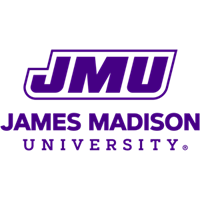Below is a summary of the abstract you submitted. Presenting author(s) is shown in bold.
If any changes need to be made, you can modify the abstract or change the authors.
You can also download a .docx version of this abstract.
If there are any problems, please email Dan at dar78@pitt.edu and he'll take care of them!
This abstract was last modified on March 23, 2022 at 10 p.m..

Two new phages named Caron and Barnstormer, collected from soil in Harrisonburg and Edinburg Virginia, have been successfully isolated, purified, sequenced, and assembled. They were isolated on the host Microbacterium spISAT203, which was also isolated at JMU. From the data we have collected, these phages join cluster EH which includes previously annotated phages UtzChips, IAmGroot, and GardenState. They are all thought to be siphoviruses, are approximately 47000 bp long and have around 70-80 genes. The plaques are clear circles surrounded by a cloudy ring or halo and range in size from approximately 2 mm to 3.5 mm. These phages all belong to cluster EH and are identical within a range of 78-99%. Interestingly, we found about 30% of this phage genome in a Microbacterium species XT11 chromosome, suggesting it may be a part of a prophage in that bacterium. Our team is proceeding with Caron's and Barnstormer’s genome annotation using the software PECAAN, and are comparing them with other known phages to hypothesize their genes types and functions. This work is part of one of our long term goals to demonstrate the effectiveness of using local hosts for phage discovery within the SEAPHAGES program at JMU. This approach has resulted in the discovery of an expanded variety of phages infecting Microbacterium species hosts.
